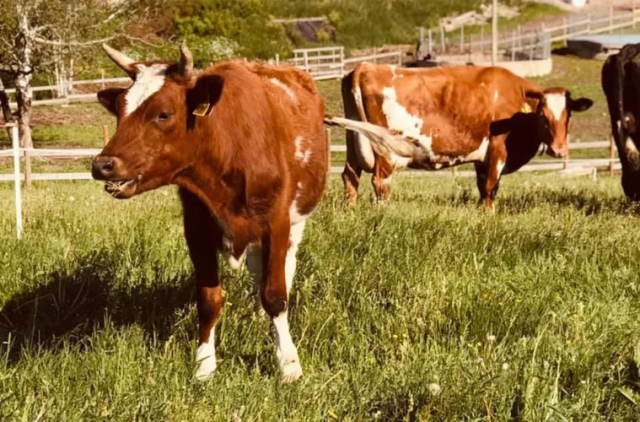
In Sweden, farmers have not protested in the streets. But they are equally disappointed with new EU laws that make their work more difficult and expensive. Most recently through the EU Parliament’s decision to restore nature.
The profitability of Swedish farmers is decreasing in the same way as for the European farmers who demonstrated in Brussels against the new EU law that is supposed to restore nature. They are deeply disappointed by the increased regulatory burden placed on agriculture.
The new EU law that the EU Parliament voted through means that the demands for the restoration of nature will be far-reaching. In Sweden, this means that the area for pasture must triple. It is unrealistic because there are not enough animals to graze and keep such large areas open.
Politicians’ will to reduce the climate footprint on food production is certainly desirable, but it is currently unrealistic to implement in Swedish agriculture.
Farmers demand halved regulatory burden
The Swedish farmers’ organization LRF demands that the regulatory burden on agriculture be halved. If the bureaucratic requirements are reduced, society can instead gain increased production in Swedish forestry and agriculture, which strengthens the security of food supply in the country and provides a more viable countryside with more employed people.
With fewer rules and laws, the state’s tax revenue can increase, says the Swedish farmers’ organization, which instead of protests and blocking the residences of power, hopes for rational discussions and consensus.
In the last 25 years, the legal regulations for the agricultural industry have more than doubled. There were 278 legal requirements on agriculture in 1996. They had increased to 648 in 2021.
Not only that the complexity of the rules has increased. Many rules counteract each other. These regulations are a serious brake on agriculture’s ability to be profitable.
Register requirements for each fluorescent lamp
There is also great irritation in the Swedish farming community that officials behind desks believe that they know better than the farmers themselves how agriculture should be run. Many rules are detailed and worded in a way that runs counter to what is reasonable and effective.
An example is that a government authority regulates the crop rotation, i.e. sets limits on how many years in a row a farmer can grow a certain crop on the arable land.
Another example of detail regulation is how to handle – fluorescent tubes. First, the farmer is required to keep a record of all fluorescent tubes used. Then every fluorescent tube that breaks and is left for recycling must be carefully recorded. If this double record keeping of each fluorescent tube is not reported, the farmer receives a penalty.
The farmers’ organization in Sweden also demands that the government make contact with the government’s agencies easier. Today, a farmer needs to be in contact with around fifteen authorities. There is no coordination between these, so they can exercise control over the same production multiple times. The authorities’ contact with the industry must be made easier, so that the farmers do not have to spend a large amount of time to satisfy bureaucrats.
Farmers make demands through talks – for now
In Sweden, the farmers present their demands through debate articles, courtships and media appearances, rather than by emptying manure outside the gates of power. But they are just as hard hit by inflation, interest rates and extreme weather as farmers on the European continent. They are fighting against ever lower profitability at the same time as laws and regulations are increasing and requiring more and more time.
Farmers in northern Europe are appealing to politicians that rapid changes are required that make a “real difference at the farm level”. This is required for them to be able to cope with their socially important mission of supplying the population with food.
The agricultural industry is of course not against increased biodiversity. It provides an increased quality and more enduring nature. But in order for Swedish farmers to cope with the new requirements, politicians must listen to the demands for simplifications, simplifications, simplifications!
The farmers are drowning under the bureaucratic zeal to register and document everything.
Therefore, Swedish farmers demand that the government show action and facilitate business for Swedish agriculture and forestry.
So far, Swedish farmers obviously have hope that it is possible to talk and hold a dialogue with the politicians. The question is what will happen if the trend of more and more regulations is not broken and agriculture is given more freedom to fulfill its calling in accordance with the knowledge and experience that has been preserved for many generations.



 Subscribe
Subscribe